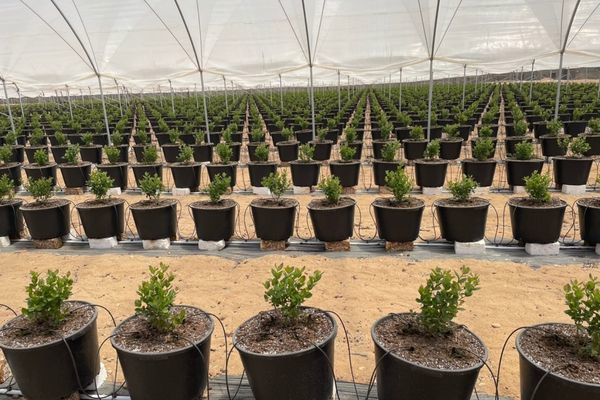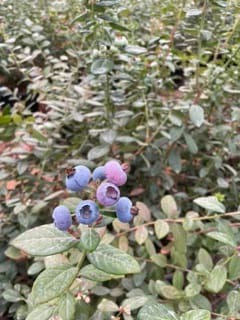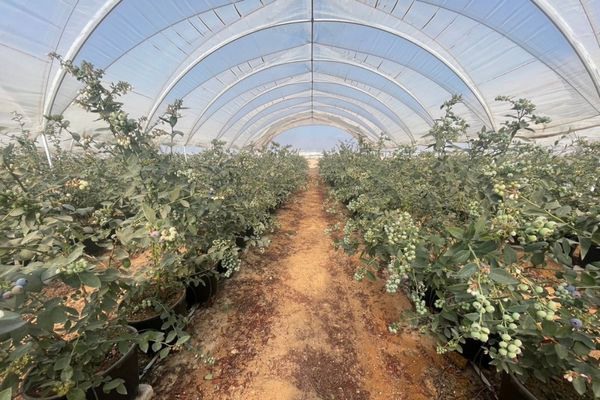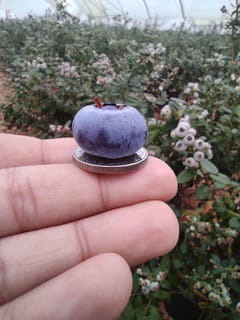After a harsh winter that worried blueberry growers in Egypt, they are now pleased with the increase in temperatures that coincides with a shortage of blueberries globally. Mr. Karim Fayed, operations manager of the Egyptian producer Fayed Agricultural Development Company (FATA), comments on this situation.

On the favorable shift of weather conditions, Karim explains: "The month of February was marked by large temperature variations from one day to another. We experienced days of over 35 degrees and nights of 1 to 3 degrees Celsius. It was a challenging month, but fortunately, the cold weather came after the end of the first bloom cycle. The weather conditions are changing favorably in March in Egypt, and we have temperatures of 25 to 28 degrees, which allows the production of blueberries to go nicely and the grading to develop well."
Competition with Morocco is a determining factor in the choice of varieties and production schedule in Egypt, adds the producer: "The best production window in terms of market demand and price is between October and February to avoid the Moroccan season as much as possible. The fact that the season comes so early is a challenge for Egyptian growers, but with the prospect of developing new reliable varieties, such as Fall Creek's Kepler, it might be feasible."
 This year, the cold snap in Morocco caused a sharp drop in blueberry volumes, and the Egyptian producer intends to capitalize on this situation by penetrating Far Eastern markets, which relied heavily on Moroccan production, said Karim. "We are working to fill the gap in the Far East market left by the Moroccan cold snap, which caused a decrease of 60% in volumes. It's generally a very difficult market to penetrate, as they work mainly with trusted suppliers who offer good quality. This situation could be very fruitful in terms of financial returns and seizing the opportunity to stand out from the competition in our region."
This year, the cold snap in Morocco caused a sharp drop in blueberry volumes, and the Egyptian producer intends to capitalize on this situation by penetrating Far Eastern markets, which relied heavily on Moroccan production, said Karim. "We are working to fill the gap in the Far East market left by the Moroccan cold snap, which caused a decrease of 60% in volumes. It's generally a very difficult market to penetrate, as they work mainly with trusted suppliers who offer good quality. This situation could be very fruitful in terms of financial returns and seizing the opportunity to stand out from the competition in our region."
Karim adds, "We are also looking to enter the UK market in the coming years, as this is our main market for other products. However, because we do not have sufficient volume to load sea freight containers on a weekly basis to make it economically viable, we are not able to supply this market at this time."

Strong demand for blueberries, amidst the fruit's disappearance from shelves in Europe, has encouraged increased volumes in Egypt, Karim added. "Despite the increase in raw material prices and considerable investments to produce blueberries in Egyptian tunnels, the acreage cultivated this season has massively increased. Breeders hope that Egypt and Morocco can together fill the gaps in the winter market. Of course, it will take a long time, but I think we are moving in the right direction." The producer is growing AtlasBlue and Ventura on a commercial scale while testing OlympusBlue, BiancaBlue, and JupiterBlue.
Despite the climate situation being currently in favor of the Egyptian producer, it has encouraged him to implement new investments out of apprehension of harder times.
 "In such difficult times from an economical point of view on a global scale, we have shifted our focus regarding short term investments onto long term impacts, both economically and environmentally. For example, we are moving to 100% solar power consumption, which should be completed within the next 12 months. We are also using a semi-automatic fertigation system for our berry production, which helps us reduce our water consumption through a series of sensors and smart irrigation. We are also working to reduce our plastic consumption and focus on the recyclability of our packaging materials - for example moving all our production to the Vivo sulphur pad from Tessara."
"In such difficult times from an economical point of view on a global scale, we have shifted our focus regarding short term investments onto long term impacts, both economically and environmentally. For example, we are moving to 100% solar power consumption, which should be completed within the next 12 months. We are also using a semi-automatic fertigation system for our berry production, which helps us reduce our water consumption through a series of sensors and smart irrigation. We are also working to reduce our plastic consumption and focus on the recyclability of our packaging materials - for example moving all our production to the Vivo sulphur pad from Tessara."
Karim concludes: "In terms of varietal innovation, for blueberries, we are still testing a few varieties that we have already mentioned. However, we are very interested in the Sekoya program which has a very strong market with high yield and quality while being easy to grow. In addition, we are looking to add raspberries and blackberries to our portfolio, which is currently being discussed with breeders in Italy and Spain."
For more information:
Karim Feyed
Fayed Agricultural Development Company (FATA)
Tel: +201001499959
Email: [email protected]
www.fata.com.eg
